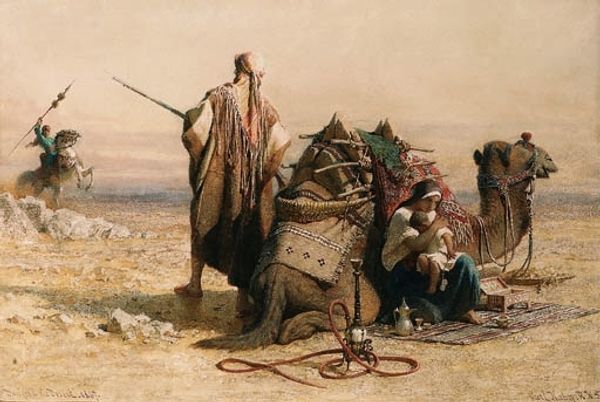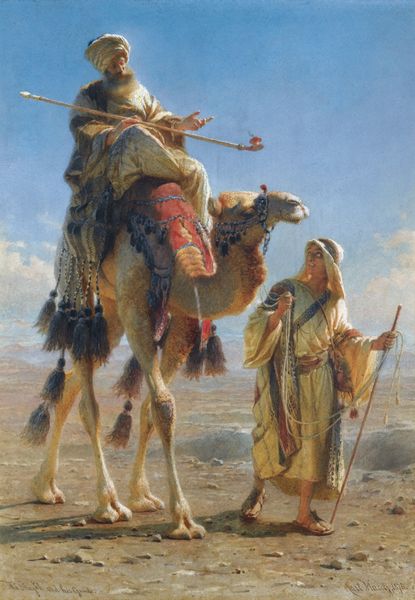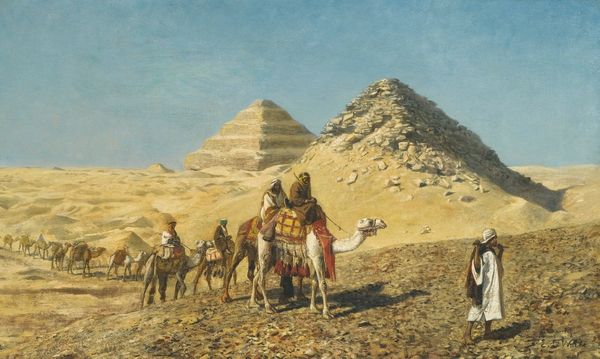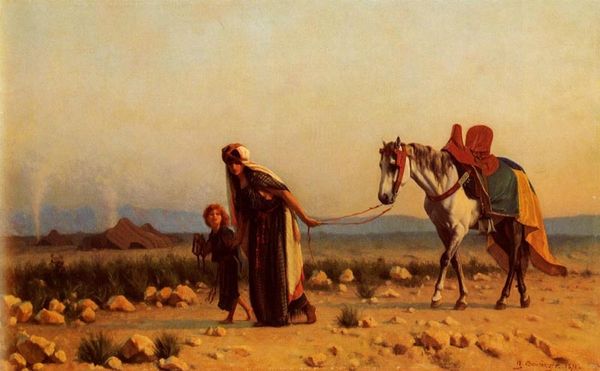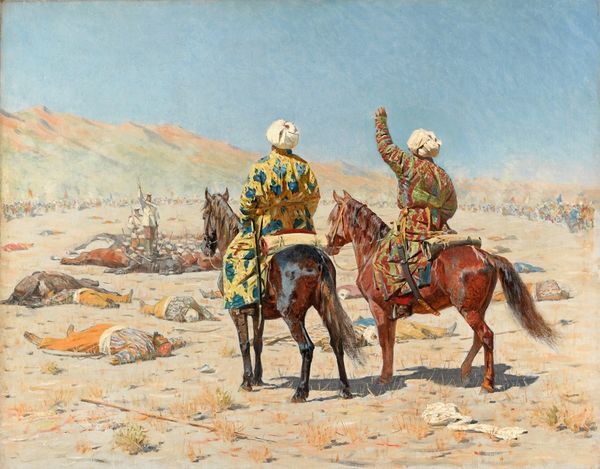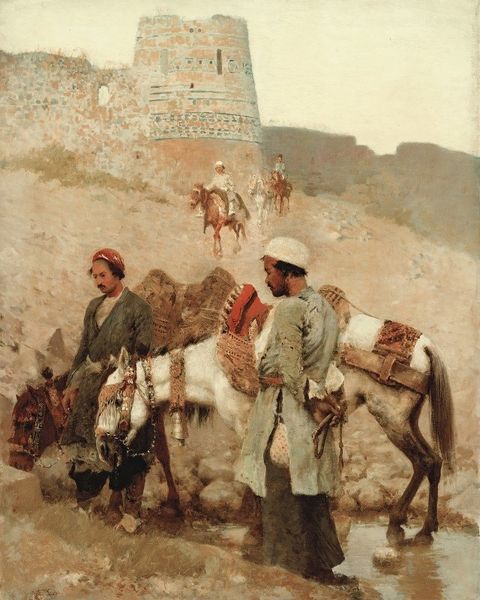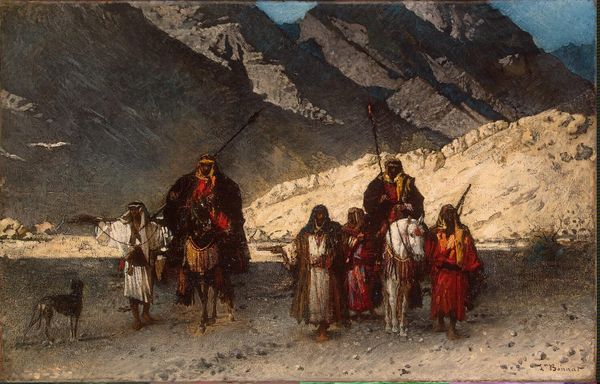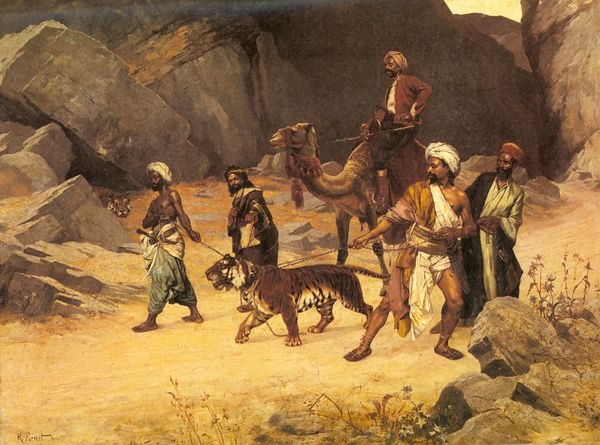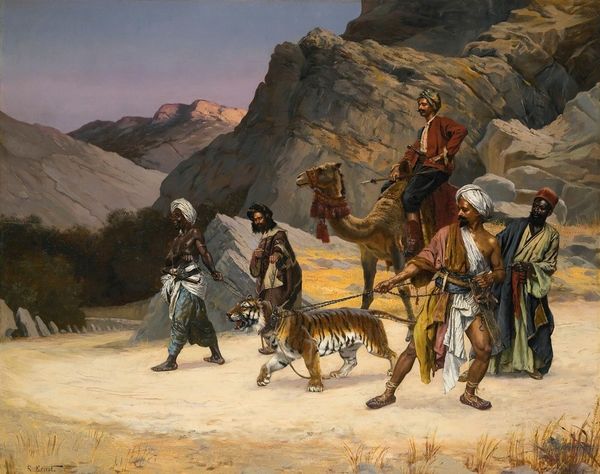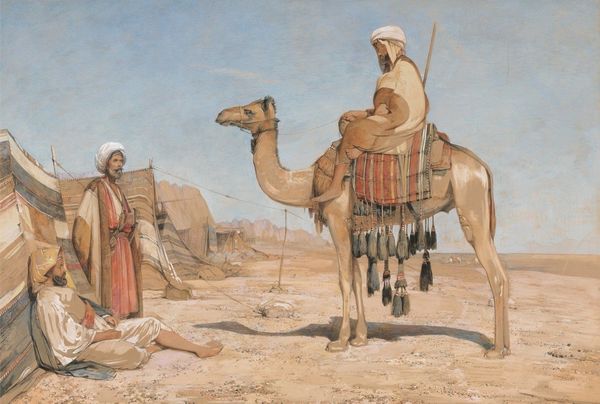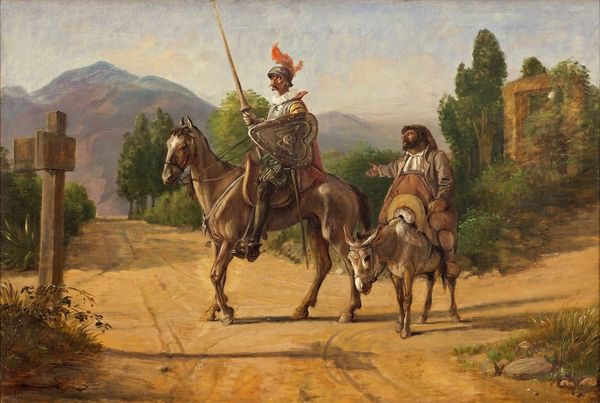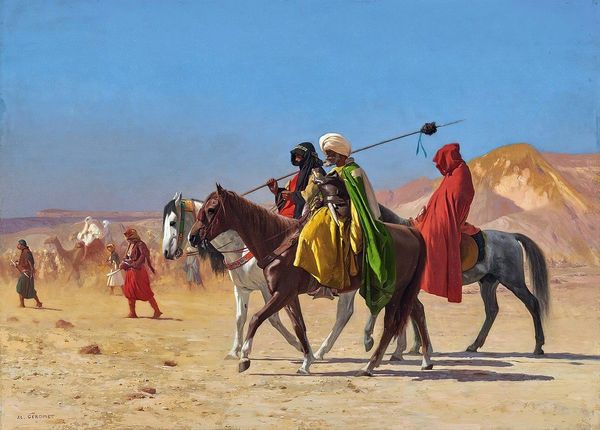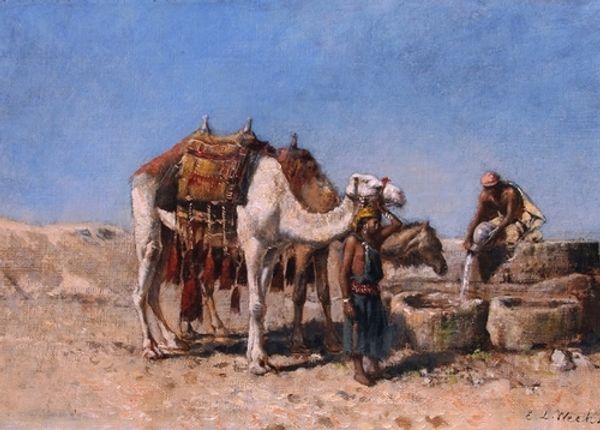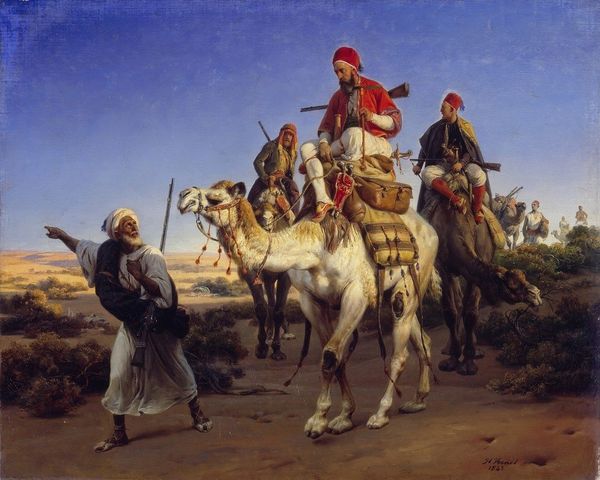
painting, oil-paint
#
figurative
#
narrative-art
#
painting
#
oil-paint
#
landscape
#
figuration
#
oil painting
#
romanticism
#
orientalism
#
genre-painting
Copyright: Public Domain: Artvee
Editor: So, this oil painting is titled *L’Escorte* by Rudolf Ernst. I get this immediate feeling of… stillness. A woman riding a camel, with a guard perhaps? There’s such vastness in the landscape, yet this contained moment. What leaps out at you when you look at it? Curator: Stillness, yes! It whispers a secret, doesn't it? Imagine the desert air, heavy and golden, that late afternoon light. For me, it's about the imagined journey. Think about Ernst, a Viennese painter, venturing into Orientalism. He’s not just painting a scene; he's building a stage for a Western fantasy. Do you sense any theatricality here? Editor: Definitely! The outfits, the almost staged arrangement... it's like a scene from a play. So, is he glorifying or…using stereotypes, or both? Curator: Ah, the delicious complexity! He's glorifying the imagined Orient, yes. But that glorification relies heavily on established stereotypes, on what his audience *expects* to see. Look at the guard’s clothes and rifle. Every detail caters to a particular vision. Do you think it's possible to appreciate the artistry without completely forgiving the cultural lens? Editor: That’s tough, but I think so. We can appreciate the skill, the light, the textures... while also acknowledging the problematic perspective. It makes me consider our own biases as viewers. Curator: Precisely! It's about engaging with art critically, isn't it? Seeing it as a product of its time, shaped by the artist’s experiences and the expectations of the market. It forces us to have a much needed conversation, perhaps even a revolution. What does the piece say to you now? Editor: That art can be beautiful and complex, and a bit…uncomfortable. It prompts critical conversations and considerations, about context and perception. Thanks, this was insightful!
Comments
No comments
Be the first to comment and join the conversation on the ultimate creative platform.
